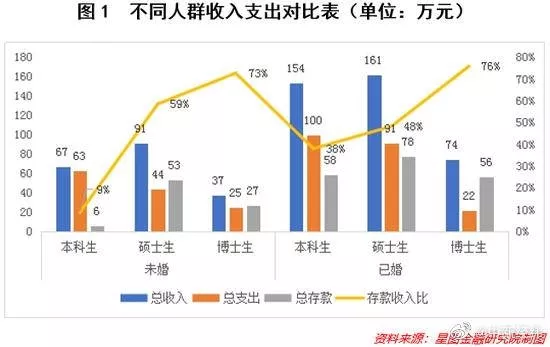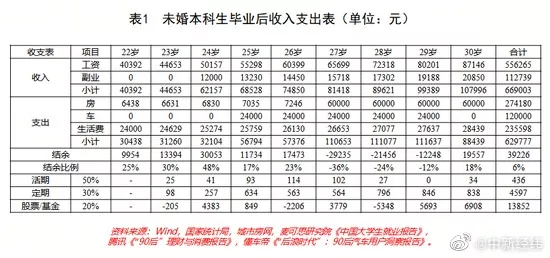The ancients said that "standing at thirty", for anyone, entering the age of 30 means coming to the golden age of life. Looking at the present, the first batch of post-90s have crossed their thirties. With the increasing maturity of their age and the continuous progress of their academic career, they are taking over the post-80s and becoming the leading force of the whole society in the fields of new economy, new culture and new consumption.
However, from another perspective, since the post-90s are in an era of rapid economic and social changes, although some people have embarked on jobs, they often fall into anxiety because of fierce social competition and high consumption level. Many people have no money to buy a house, dare not get married, and even continue to rely on their parents' "assistance".
In the income item, the starting salary of the above groups shall be determined according to the graduation salary of fresh students over the years in the employment report of Chinese college students issued by Mycos Research Institute; According to the survey, nearly 30% of the post-90s have a high-income sideline, so we also include the sideline income.
Specifically, the deposit amount of the first batch of post-90s at the age of 30 is about 270000 ~ 380000 Yuan, which means that it may be an ideal state to have a deposit of about 300000 yuan at the age of 30. The savings income of married people is generally higher than that of unmarried people. Although they spend more, their income is also doubling; Master's students, whether unmarried or married, have the largest absolute savings**


In the expenditure item, the cost of living is taken as the basic expenditure item. Since housing loans and car loans are important sources of pressure for the post-90s, these two items are also included. In addition, in married groups, the expenses related to raising children are also very important, which can not be ignored.
According to the "post-90s" financial management and consumption report released by Tencent, 84% of the post-90s have the habit of financial management. Therefore, according to the principle of relative soundness, the balance items are allocated to current deposits, fixed deposits and stocks / funds in a ratio of 5:3:2. The interest rate of current deposits is determined by the central bank, and the fixed deposits are the average interest rate of government bonds in the current year, The return rate of stock / fund comes from the return of CSI 300 passive fund in that year.